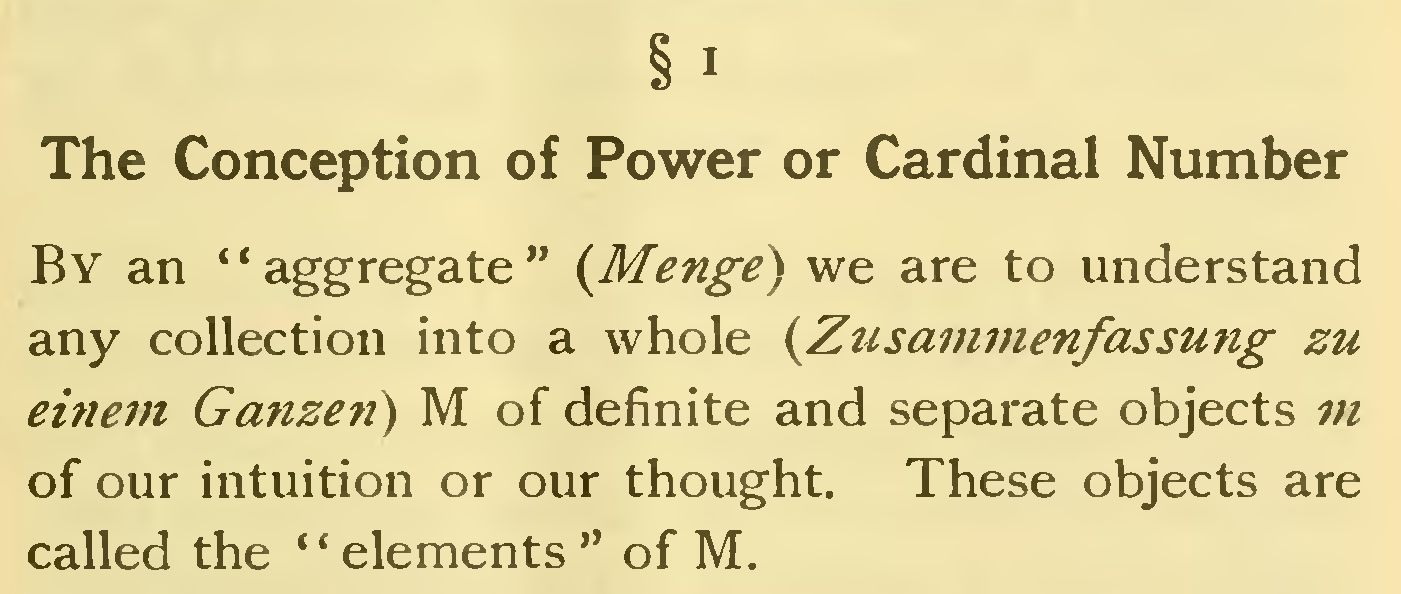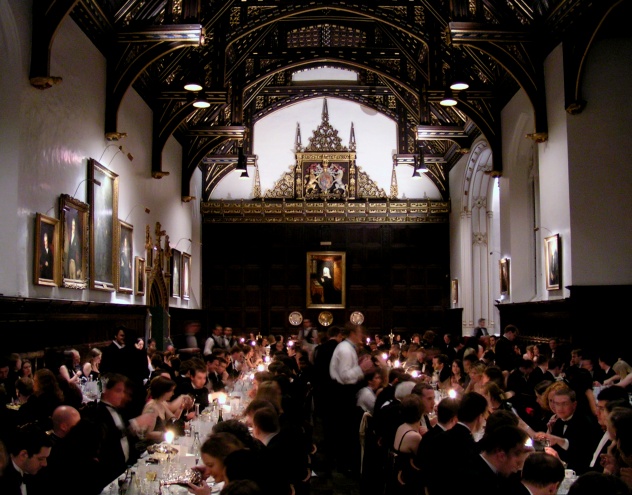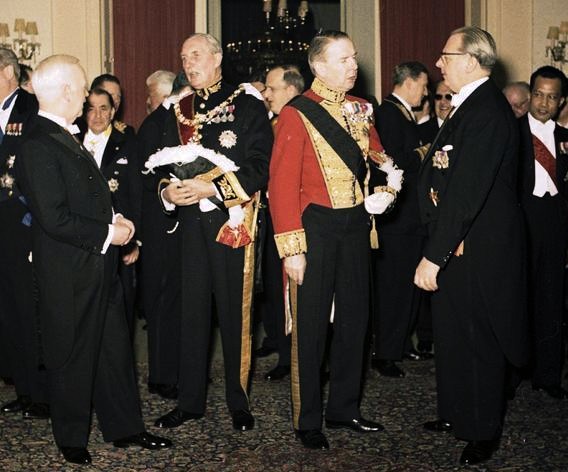|
Informal
Formal, formality, informal or informality imply the complying with, or not complying with, some set of requirements ( forms, in Ancient Greek). They may refer to: Dress code and events * Formal wear, attire for formal events * Semi-formal attire, attire for semi-formal events * Informal attire, more controlled attire than casual but less than formal * Formal (university), official university dinner, ball or other event * School formal, official school dinner, ball or other event Logic and mathematics * Formal logic, or symbolic logic ** Informal logic, the complement, whose definition and scope is contentious * Formal fallacy, reasoning of invalid structure ** Informal fallacy, the complement * Informal mathematics, also called naïve mathematics * Formal cause, Aristotle's intrinsic, determining cause * Formal power series, a generalization of power series without requiring convergence, used in combinatorics * Formal calculation, a calculation which is systematic, but wi ... [...More Info...] [...Related Items...] OR: [Wikipedia] [Google] [Baidu] |
Formal Logic
Logic is the study of correct reasoning. It includes both formal and informal logic. Formal logic is the study of deductively valid inferences or logical truths. It examines how conclusions follow from premises based on the structure of arguments alone, independent of their topic and content. Informal logic is associated with informal fallacies, critical thinking, and argumentation theory. Informal logic examines arguments expressed in natural language whereas formal logic uses formal language. When used as a countable noun, the term "a logic" refers to a specific logical formal system that articulates a proof system. Logic plays a central role in many fields, such as philosophy, mathematics, computer science, and linguistics. Logic studies arguments, which consist of a set of premises that leads to a conclusion. An example is the argument from the premises "it's Sunday" and "if it's Sunday then I don't have to work" leading to the conclusion "I don't have to wor ... [...More Info...] [...Related Items...] OR: [Wikipedia] [Google] [Baidu] |
Informal Logic
Informal logic encompasses the principles of logic and logical thought outside of a formal setting (characterized by the usage of particular statements). However, the precise definition of "informal logic" is a matter of some dispute. Ralph H. Johnson and J. Anthony Blair define informal logic as "a branch of logic whose task is to develop non-formal standards, criteria, procedures for the analysis, interpretation, evaluation, criticism and construction of argumentation."Johnson, Ralph H., and Blair, J. Anthony (1987), "The Current State of Informal Logic", ''Informal Logic'', 9(2–3), 147–151. Johnson & Blair added "... in everyday discourse" but in (2000), modified their definition, and broadened the focus now to include the sorts of argument that occurs not just in everyday discourse but also disciplined inquiry—what Weinstein (1990) calls "stylized discourse." This definition reflects what had been implicit in their practice and what others were doing in their informal ... [...More Info...] [...Related Items...] OR: [Wikipedia] [Google] [Baidu] |
Informal Fallacy
Informal fallacies are a type of incorrect argument in natural language. The source of the error is not just due to the ''form'' of the argument, as is the case for formal fallacies, but can also be due to their ''content'' and ''context''. Fallacies, despite being incorrect, usually ''appear'' to be correct and thereby can seduce people into accepting and using them. These misleading appearances are often connected to various aspects of natural language, such as ambiguous or vague expressions, or the assumption of implicit premises instead of making them explicit. Traditionally, a great number of informal fallacies have been identified, including the fallacy of equivocation, the fallacy of amphiboly, the Fallacy of composition, fallacies of composition and Fallacy of division, division, the false dilemma, the fallacy of begging the question, the ad hominem fallacy and the appeal to ignorance. There is no general agreement as to how the various fallacies are to be grouped into cate ... [...More Info...] [...Related Items...] OR: [Wikipedia] [Google] [Baidu] |
Informal Mathematics
Informal mathematics, also called naïve mathematics, has historically been the predominant form of mathematics at most times and in most cultures, and is the subject of modern ethno-cultural studies of mathematics. The philosopher Imre Lakatos in his '' Proofs and Refutations'' aimed to sharpen the formulation of informal mathematics, by reconstructing its role in nineteenth century mathematical debates and concept formation, opposing the predominant assumptions of mathematical formalism.Imre Lakatos, ''Proofs and Refutations'' (1976), especially the Introduction. Informality may not discern between statements given by ''inductive reasoning'' (as in approximations which are deemed "correct" merely because they are useful), and statements derived by ''deductive reasoning''. Terminology ''Informal mathematics'' means any informal mathematical practices, as used in everyday life, or by aboriginal or ancient peoples, without historical or geographical limitation. Modern mathemati ... [...More Info...] [...Related Items...] OR: [Wikipedia] [Google] [Baidu] |
Informal Attire
Informal wear or undress, also called business wear, corporate/office wear, tenue de ville or dress clothes, is a Western dress codes, Western dress code for clothing defined by a business suit for men, and cocktail dress or pant suit for women. On the scale of formality, it is considered less formal than semi-formal wear but more formal than casual wear. Informal or undress should not be confused with casual wear such as business casual or smart casual; most situations calling for "informal wear" will usually tolerate casual dress to varying extents. The suit originated as leisure wear in the late 19th century but eventually replaced the frock coat as everyday wear in the city. After World War I, the suit was established as informal daily wear. Hats, such as fedora or bowler hats, are sometimes worn with informal wear. Informal wear is commonly applied for office use in professions like politics, academia, law and finance, business, as well as certain events such as job inter ... [...More Info...] [...Related Items...] OR: [Wikipedia] [Google] [Baidu] |
Naive Set Theory
Naive set theory is any of several theories of sets used in the discussion of the foundations of mathematics. Unlike axiomatic set theories, which are defined using formal logic, naive set theory is defined informally, in natural language. It describes the aspects of mathematical sets familiar in discrete mathematics (for example Venn diagrams and symbolic reasoning about their Boolean algebra), and suffices for the everyday use of set theory concepts in contemporary mathematics. Sets are of great importance in mathematics; in modern formal treatments, most mathematical objects (numbers, relations, functions, etc.) are defined in terms of sets. Naive set theory suffices for many purposes, while also serving as a stepping stone towards more formal treatments. Method A ''naive theory'' in the sense of "naive set theory" is a non-formalized theory, that is, a theory that uses natural language to describe sets and operations on sets. Such theory treats sets as platonic absolute o ... [...More Info...] [...Related Items...] OR: [Wikipedia] [Google] [Baidu] |
Colloquialism
Colloquialism (also called ''colloquial language'', ''colloquial speech'', ''everyday language'', or ''general parlance'') is the linguistic style used for casual and informal communication. It is the most common form of speech in conversation among persons in friendship, familial, intimate, and other informal contexts. Colloquialism is characterized by the usage of figurative language, contractions, filler words, interjections, and other informalities such as slang. In contrast to formal and professional communications, colloquial speech does not adhere to grammar and syntax rules and thus may be considered inappropriate and impolite in situations and settings where etiquette is expected or required. It has a rapidly changing lexicon and can also be distinguished by its usage of formulations with incomplete logical and syntactic ordering. Definition Colloquialism is distinct from formal speech or formal writing.colloquial. (n.d.) Dictionary.com Unabridged (v 1.1). Ret ... [...More Info...] [...Related Items...] OR: [Wikipedia] [Google] [Baidu] |
Formal Power Series
In mathematics, a formal series is an infinite sum that is considered independently from any notion of convergence, and can be manipulated with the usual algebraic operations on series (addition, subtraction, multiplication, division, partial sums, etc.). A formal power series is a special kind of formal series, of the form \sum_^\infty a_nx^n=a_0+a_1x+ a_2x^2+\cdots, where the a_n, called ''coefficients'', are numbers or, more generally, elements of some ring, and the x^n are formal powers of the symbol x that is called an indeterminate or, commonly, a variable. Hence, power series can be viewed as a generalization of polynomials where the number of terms is allowed to be infinite, and differ from usual power series by the absence of convergence requirements, which implies that a power series may not represent a function of its variable. Formal power series are in one to one correspondence with their sequences of coefficients, but the two concepts must not be confused, sin ... [...More Info...] [...Related Items...] OR: [Wikipedia] [Google] [Baidu] |
Formal Fallacy
In logic and philosophical logic, philosophy, a formal fallacy is a pattern of reasoning rendered validity (logic), invalid by a flaw in its logical structure. propositional calculus, Propositional logic, for example, is concerned with the meanings of sentences and the relationships between them. It focuses on the role of logical operators, called propositional connectives, in determining whether a sentence is true. An error in the sequence will result in a deductive argument that is invalid. The argument itself could have true premises, but still have a false logical consequence, conclusion. Thus, a formal fallacy is a fallacy in which deduction goes wrong, and is no longer a logical process. This may not affect the truth of the conclusion, since validity and truth are separate in formal logic. While a logical argument is a ''non sequitur'' if, and only if, it is invalid, the term "non sequitur" typically refers to those types of invalid arguments which do not constitute formal fa ... [...More Info...] [...Related Items...] OR: [Wikipedia] [Google] [Baidu] |
Formal (university)
Formal hall or formal meal is a meal held at some of the oldest universities in the United Kingdom and the Republic of Ireland (as well as some other Commonwealth countries) at which students usually dress in formal attire and often gowns to dine. These are held commonly in the colleges of Oxford, Cambridge and Durham, at Trinity College Dublin (where they are known as commons), and in some halls and colleges at St Andrews, and the Australian sandstone universities (Adelaide, Melbourne, Queensland, Sydney, Tasmania, Western Australia), and at Trinity College, Toronto. In a number of redbrick universities, such as Manchester, Bristol, Leeds and Exeter, some halls practise similar traditions in order to increase interaction between academics and students, and to enrich the students' overall learning experience. Colleges of some Australian redbrick universities, including the Australian National University, Monash University, the University of New England, the University of N ... [...More Info...] [...Related Items...] OR: [Wikipedia] [Google] [Baidu] |
Semi-formal Attire
Semi-formal wear or half dress is a grouping of dress codes indicating the sort of clothes worn to events with a level of formality between informal wear and formal wear. In the modern era, the typical interpretation for men is black tie for evening wear and black lounge suit for day wear, corresponded by either a pant suit or an evening gown for women.- Whether one would choose to wear morning or evening semi-formal has traditionally been defined by whether the event will commence before or after 6:00 p.m. In addition, equivalent versions may be permitted such as ceremonial dresses (including court dress, diplomatic uniforms and academic dress), religious clothing, national costumes, and military mess dress. Evening wear: "black tie" dinner suit For evening wear (after 6 p.m.), the code is black tie. In formal evening dress, or white tie dress, this practice of substituting colors in ties is much less common since men's fashion tends to follow tradition more deeply as ... [...More Info...] [...Related Items...] OR: [Wikipedia] [Google] [Baidu] |
Formal Wear
Formal wear or full dress is the Western dress code category applicable for the most formal occasions, such as weddings, Baptism, christenings, confirmations, funerals, Easter traditions, Easter and Christmas traditions, in addition to certain state dinners, Audience (meeting), audiences, Ball (dance party), balls, and horse racing events. When formal dress is required, generally permitted alternatives include the most formal versions of ceremonial dresses (including court dresses, diplomatic uniforms and academic dresses), full dress uniforms, religious clothing, national costumes, and most rarely frock coats (which preceded morning coat as default formal day wear 1820s-1920s). In addition, formal wear is often properly worn when displaying official full size order (distinction), orders and medals. The Etiquette, protocol specifying men's traditional formal wear has remained virtually unchanged since the early 20th century. Despite decline following the counterculture of the 19 ... [...More Info...] [...Related Items...] OR: [Wikipedia] [Google] [Baidu] |



